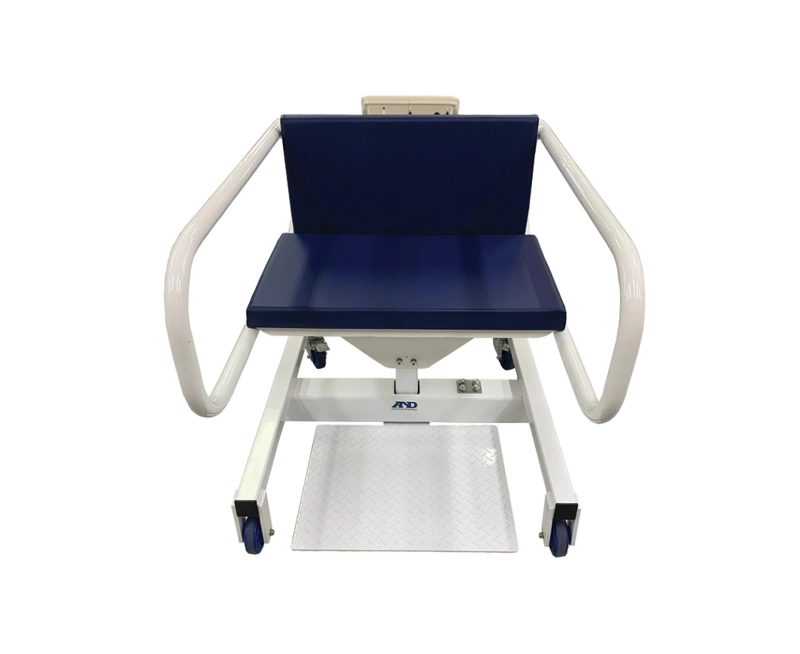Obesity is a growing health concern in Australia, with increasing numbers of patients requiring specialized medical care. According to the Australian Institute of Health and Welfare (AIHW), around 67% of Australian adults were classified as overweight or obese in 2017–18, a statistic that continues to rise.
For healthcare providers, accurately monitoring the weight of bariatric patients is essential for effective treatment and care. This is where bariatric scales play a crucial role. These specialized medical scales are designed to accommodate higher weight capacities and provide precise measurements, ensuring better healthcare outcomes for individuals with obesity.
The Importance of Accurate Weight Measurement in Healthcare
Weight is a fundamental health indicator that affects medication dosing, treatment planning, and disease management. Inaccurate weight measurements can lead to incorrect medication dosages, misdiagnosis, and ineffective treatment plans. Traditional weighing scales may not be suitable for bariatric patients due to weight limits and inadequate platform sizes, making bariatric scales an essential tool in modern healthcare settings.
Key Benefits of Bariatric Scales in Patient Care
Enhanced Patient Comfort and Safety
- Bariatric scales are designed with larger, more stable platforms, making it easier and safer for patients to be weighed without discomfort or risk of falls.
- Many models feature handrails or seating options to provide additional support for individuals with limited mobility.
High Weight Capacity
- Standard medical scales typically support weights up to 200 kg, whereas bariatric scales can handle up to 500 kg or more.
- This ensures that all patients, regardless of weight, can be accurately measured without compromising safety.
Improved Accuracy for Better Treatment Plans
- Precise weight readings are crucial for prescribing medication, especially for conditions like diabetes, hypertension, and heart disease.
- Many bariatric scales offer digital readings with high precision to minimize errors.
Accessibility for Patients with Mobility Issues
- Some bariatric scales come with wheelchair-accessible features, allowing patients to be weighed without needing to stand up.
- This is particularly beneficial for individuals with disabilities or those recovering from surgery.
Integration with Medical Records Systems
- Advanced bariatric scales can be connected to hospital databases and electronic health record (EHR) systems, ensuring seamless data management.
- This integration helps healthcare providers track patient progress and make informed decisions.
Applications of Bariatric Scales in Australian Healthcare Facilities
1. Hospitals and Clinics
- Many Australian hospitals now incorporate bariatric scales in emergency rooms, ICUs, and general wards to ensure quick and accurate weight assessments.
- This allows healthcare teams to respond efficiently to patients with obesity-related complications.
2. Aged Care and Rehabilitation Centres
- Older adults with obesity often have mobility challenges that make standard weighing methods impractical.
- Bariatric scales in aged care facilities help monitor weight changes, aiding in nutritional and medical care planning.
3. Home Healthcare and Community Care Services
- With the rise of home healthcare services, portable bariatric scales enable nurses and caregivers to monitor patients remotely.
- This reduces the need for hospital visits and enhances convenience for patients and families.
4. Surgical and Bariatric Treatment Centres
- For patients undergoing weight-loss surgery or bariatric procedures, tracking weight before and after surgery is vital.
- Bariatric scales provide precise weight data to assess progress and adjust treatment plans accordingly.
Choosing the Right Bariatric Scale for Healthcare Settings
When selecting a bariatric scale, healthcare providers should consider the following factors:
- Weight Capacity – Ensure the scale can support the maximum expected patient weight.
- Platform Size and Design – A larger platform or wheelchair-accessible design improves ease of use.
- Precision and Accuracy – Digital scales with high precision are preferred for medical use.
- Connectivity Features – Integration with medical records simplifies patient tracking.
- Portability – Some models offer mobility options for use in different settings.
The Future of Bariatric Care in Australia
With obesity rates on the rise, the demand for bariatric healthcare solutions will continue to grow. Advances in medical technology are leading to more sophisticated bariatric scales, including those with wireless data transmission, AI-powered health monitoring, and enhanced weight-tracking capabilities.
Investing in high-quality bariatric scales is a step toward improving patient care and ensuring that individuals with obesity receive the medical attention they need. By incorporating these advanced weighing solutions into healthcare facilities across Australia, we can promote better health outcomes, enhance patient safety, and support medical professionals in delivering accurate and effective care.
Conclusion
Bariatric scales are more than just weighing devices—they are essential tools in modern healthcare that improve patient care, enhance treatment accuracy, and ensure safety for individuals with obesity. From hospitals to aged care facilities and home healthcare services, these specialized scales are making a significant difference in how medical professionals approach weight management and patient treatment. As Australia continues to address the growing obesity epidemic, investing in the right bariatric scales will be crucial in providing high-quality care and improving health outcomes for patients across the country.


